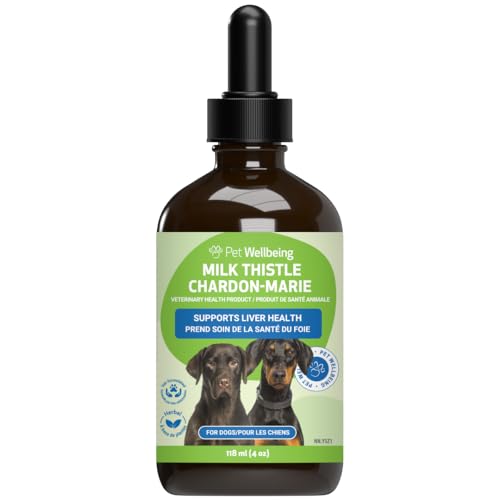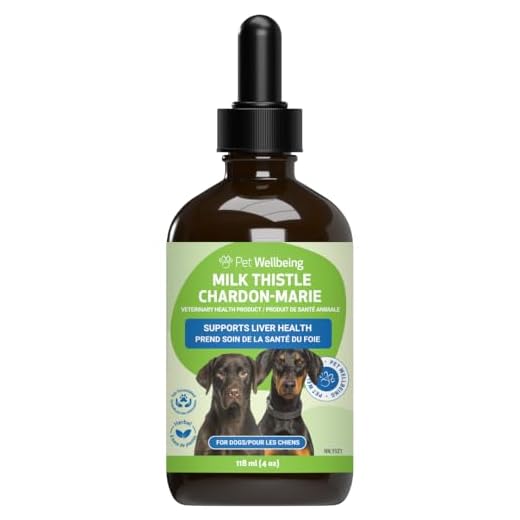


For those considering the use of N-acetylcysteine, it’s crucial to approach this supplement with caution. While it has gained attention for its potential benefits, especially in treating certain medical conditions, it’s essential to consult with a veterinarian before introducing this compound into your pet’s routine.
Research indicates that N-acetylcysteine can serve as an antioxidant, aiding in the detoxification processes within your furry friend’s body. Nonetheless, its use is not without risks. Side effects can vary, and some pets may experience gastrointestinal upset, including nausea or vomiting. Monitoring your animal closely after administration is advisable to ensure they don’t experience adverse reactions.
Always seek veterinary advice tailored to your pet’s specific health profile. Individual factors such as age, breed, and existing health issues play a significant role in determining whether this supplement could be beneficial or harmful. Your veterinarian can provide insights based on the latest research and your companion’s unique needs.
Is NAC Safe for Canines?
Yes, this compound can be beneficial for your furry friend when used correctly. It acts as a potent antioxidant and has been employed in veterinary medicine, especially for detoxifying certain toxins like acetaminophen. Always consult your veterinarian before introducing it into your pet’s regimen.
Recommended Dosage
The appropriate dosage largely depends on your companion’s weight and health status. Generally, a common guideline suggests 5-20 mg per kilogram of body weight. However, it’s paramount to have a vet tailor the dosage to your pet’s specific needs, ensuring their health and well-being.
Possible Side Effects
While this substance is generally well-tolerated, some pets may experience gastrointestinal issues such as vomiting or diarrhoea. If you notice any adverse reactions, discontinue use immediately and consult your vet. Regular monitoring during the initial stages is advisable to ensure your pet adapts well to this supplement.
Understanding the Benefits of NAC for Canine Health
Administering this compound can boost your furry friend’s well-being significantly. It acts as a powerful antioxidant, which helps to neutralise harmful free radicals in the body, reducing oxidative stress. This process is particularly beneficial for older pets or those with chronic conditions.
Respiratory Support
One remarkable advantage is its ability to support respiratory health. By thinning mucus, it can aid in clearing the airways, making it easier for your pet to breathe. I’ve noticed that my older retriever, who has had some breathing issues, has shown improvement when I included this in her regimen. It seems to provide her with relief during those chilly mornings when the air is damp and heavy.
Liver Detoxification
Another key benefit lies in its role in liver detoxification. This compound enhances the liver’s capacity to process toxins, which is especially relevant for pets exposed to environmental pollutants or those on medications. I once had a spaniel who faced some liver challenges; incorporating this into her routine seemed to provide her with a more robust recovery phase. It’s fascinating to observe how a simple addition can make such a difference in their health.
As always, consult your veterinarian before introducing any new supplement into your pet’s diet. Tailoring their care to their unique needs is crucial for promoting a long, healthy life.
Potential Side Effects and Risks of NAC in Dogs
While this supplement can offer benefits, potential adverse reactions must be considered. Gastrointestinal upset, including vomiting and diarrhoea, is common with initial doses. Some canines may exhibit hypersensitivity, leading to allergic reactions. Symptoms can include itching, swelling, or difficulty breathing. If any of these occur, immediate veterinary assistance is crucial.
Monitoring and Dosage
When introducing it into your pet’s regimen, start with a low dosage and gradually increase while observing your furry friend for any negative changes. Regular follow-ups with your vet can help determine the appropriate amount and frequency. Assessing your companion’s overall condition is necessary, especially if they have pre-existing health issues or are on other medications that might interact.
Dietary Considerations
Pairing this treatment with a balanced diet, such as the best raw food for allergic dogs, can enhance its effects and support overall wellbeing. Always consult your veterinarian before making changes to your dog’s diet or adding new supplements to ensure a safe and beneficial approach.
Recommended Dosage and Administration Guidelines for Canines
The typical dosage for this supplement ranges from 10 to 20 mg per kilogram of body weight. For a medium-sized canine weighing around 10 kg, a starting dose would be approximately 100 to 200 mg daily. It’s advisable to consult a veterinary professional before initiating any new supplement regimen, as individual health conditions can affect the appropriate dosage.
Administering this supplement can be done in various ways. If the product comes in tablet form, it can be given directly, or you might crush it and mix it with food to ensure your furry friend consumes the entire dose. Liquid formulations can be measured using a dropper and added to meals or given directly if your pet is cooperative.
For optimal absorption and effectiveness, providing it on an empty stomach is recommended. However, some dogs may experience gastrointestinal upset, so monitor how your pet reacts initially. If any discomfort occurs, consider giving it with food.
Regular follow-ups with your veterinarian are crucial to assess the ongoing suitability and adjust dosages as necessary based on your canine’s response and overall health condition.
Consulting Your Veterinarian About NAC for Your Dog
Always turn to your vet before introducing any new supplement into your pet’s regimen. Their expertise is vital in determining whether this compound is appropriate for your furry friend.
- Discuss your dog’s health history, including any underlying conditions or medications that may interact with this compound.
- Your vet can provide tailored advice on potential benefits and drawbacks specific to your canine.
- Ask about dosage recommendations based on your dog’s weight and overall health.
- Inquire about monitoring protocols to ensure your pet’s well-being while using this supplement.
- Stay informed about any recent studies or updates regarding this compound in veterinary medicine.
During my visits with my vet, I learned how important it is to maintain an open dialogue. They often share insights about the latest research and what may or may not work for my pup. For instance, when I was considering new supplements, my vet provided a list of questions to ask myself and guidelines to follow.
Don’t hesitate to reach out to your veterinarian if you have any concerns or need clarification about this addition to your dog’s diet. Their professional advice is the best way to ensure your canine companion remains healthy and happy.
FAQ:
Is NAC safe for dogs?
N-acetylcysteine (NAC) is generally considered safe for dogs when used under veterinary guidance. It is often used to treat certain conditions, such as acetaminophen poisoning and as a mucolytic agent to help with respiratory issues. However, the dosage and duration of use should always be determined by a veterinarian to avoid any potential side effects.
What are the potential side effects of NAC in dogs?
While NAC is usually well-tolerated, some dogs may experience gastrointestinal upset, including nausea, vomiting, or diarrhoea. In rare cases, it may cause allergic reactions or skin irritations. If any unusual symptoms occur after administering NAC, it is important to contact a veterinarian promptly for advice.
How is NAC administered to dogs?
NAC can be given to dogs in various forms, including oral tablets, capsules, or liquid solutions. The method of administration may depend on the specific condition being treated and the dog’s size. It is crucial to follow the veterinarian’s instructions regarding dosage and frequency to ensure safety and effectiveness.
Can I give my dog NAC without consulting a vet?
It is not advisable to give NAC to your dog without consulting a veterinarian first. While NAC has therapeutic benefits, the correct dosage and potential interactions with other medications need to be considered. Veterinary consultation helps ensure that the treatment is appropriate for your dog’s specific health needs.
Are there any alternatives to NAC for dogs?
There are several alternatives to NAC that may be suitable depending on the dog’s condition. For instance, other antioxidants or liver support supplements might be recommended for liver health. Always discuss with a veterinarian to identify the best option for your dog’s health situation, as they can provide tailored advice and recommendations.






